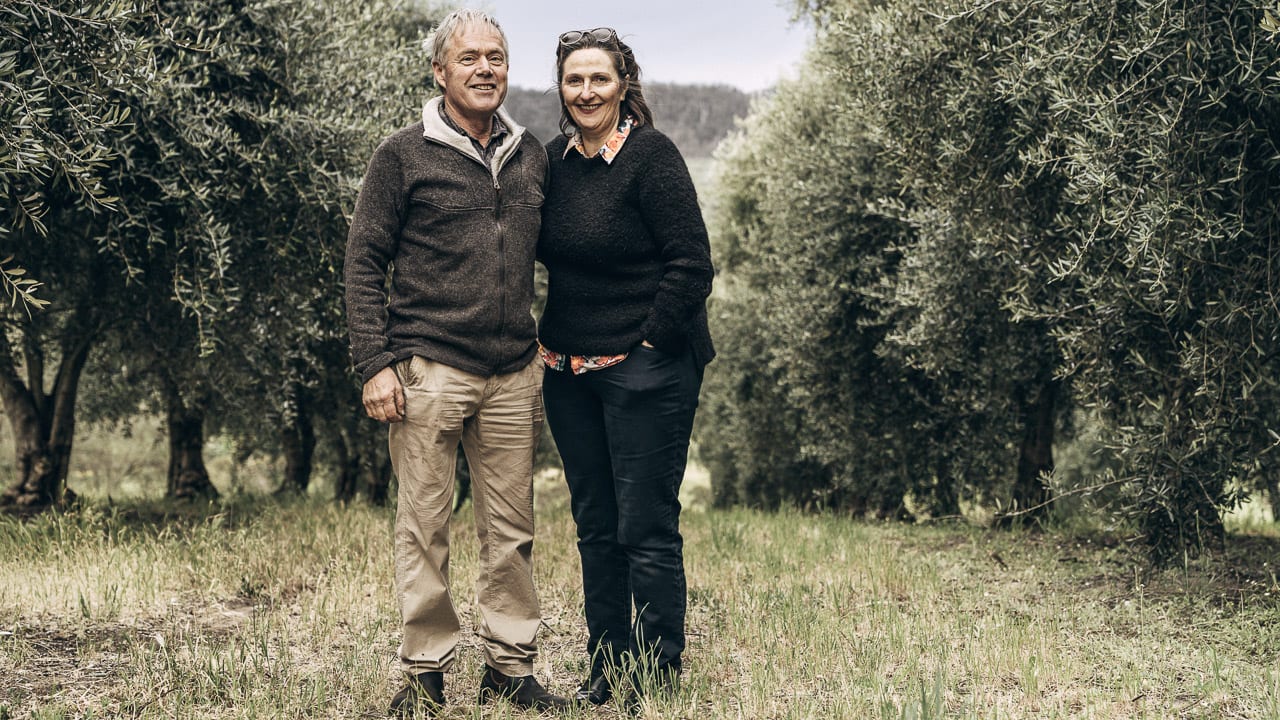Nestled snugly in the Derwent Valley, Ashbolt Farm has been cared for by generations of the one family for well over a century. Gazing across 350 glorious acres, one is rewarded with a panorama stretching from Mount Field in the north through to Sorell to the south. Indeed, the highest point on the property once served as a semaphore station, relaying vital messages from Port Arthur to the far west coast. It is said the process took less than half an hour on a clear spring day.
As Robert Ashbolt explains, it’s a property steeped in history. “My great grandfather, Cecil Walker, first fell in love with the land back in 1906. The family didn’t live here then…it was just a place to visit.” An excerpt from Cecil’s diary describes how the family soon established a retreat, enjoying the picturesque surrounds to entertain friends in the heat of an inland Tasmanian summer.
“As it developed, we became very attached to the place and have happy memories of lazy afternoons spent on the lawn shaded from the heat of the sun by one of the many scented limes while we entertained our friends at tea. Through the leafy branches of the oaks and elms we could catch a glimpse of the clear waters of the broad Derwent flowing serenely by, reflecting on its placid surface many a green hop field and fertile orchard as it made its way to our nearest village three miles below.”
Today Robert and his wife Anne are Ashbolt’s custodians, having cared for the farm since the 1980s. “Anne fell instantly in love with the place as soon as I brought her here,” recalls Robert, smiling at his wife. “She loved the notion of heritage and legacy that is has, and not having a large family of her own close by, she was very keen for our kids to be raised with strong family connections.”
The couple invested heavily in finding crops to suit Ashbolt’s location. “Back when I was a boy, I spent many a weekend up here. In those days we had an apple orchard. But after the apple industry collapsed here and those trees were pulled out of the valley, things changed and other farming practices were required,” says Robert.
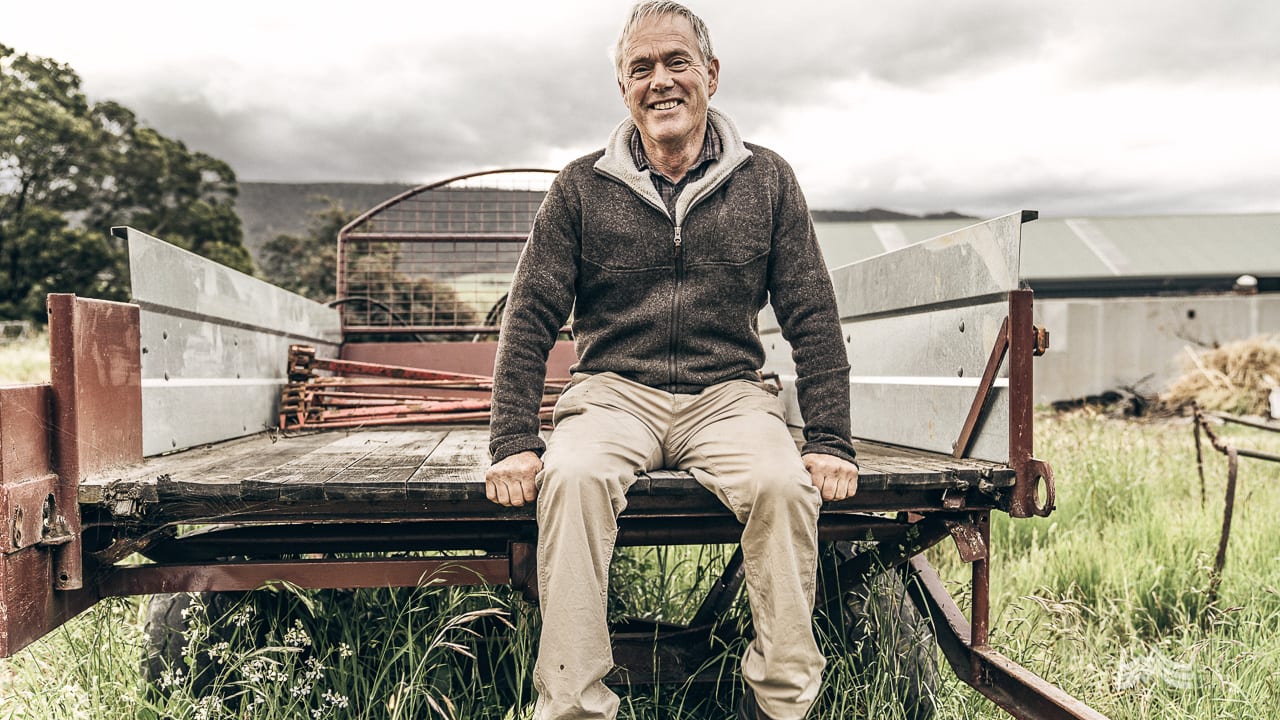
Anne picks up the story, “It took a decade of us essentially being apprentices to learn the complexities that a multi-enterprise farm such as ours requires. The soil here is very sandy and vicious winds can quickly wreak havoc by stripping the land of essential nutrients. We spent years establishing sufficient vegetation to create a suitable micro-climate and enriching the soil in an organic way.”
“It has been a journey…about discovering ourselves, developing our skills and our land, and realising where our combined potentials lie,” describes Anne. “It has been about working with what we have and making a mix of enterprises peculiar to this particular block,” she muses. “Mostly, it is about understanding the seasons here and how peculiar they are to this area and working with that.”
“We’ve always been committed to growing without chemicals and hate adding anything artificial to the ground,” Anne continues. “Goats have been great at maintaining the weeds and the cattle certainly helped return some much needed manure to the pastures. We’ve added hundreds of tonnes of nutrient rich cover crops and natural seaweed fertilisers to the soil here, and are able to use the clear, clean water from the upper Derwent River. We’ve invested a lot in nurturing this land and I think you can taste the difference in what we produce.”
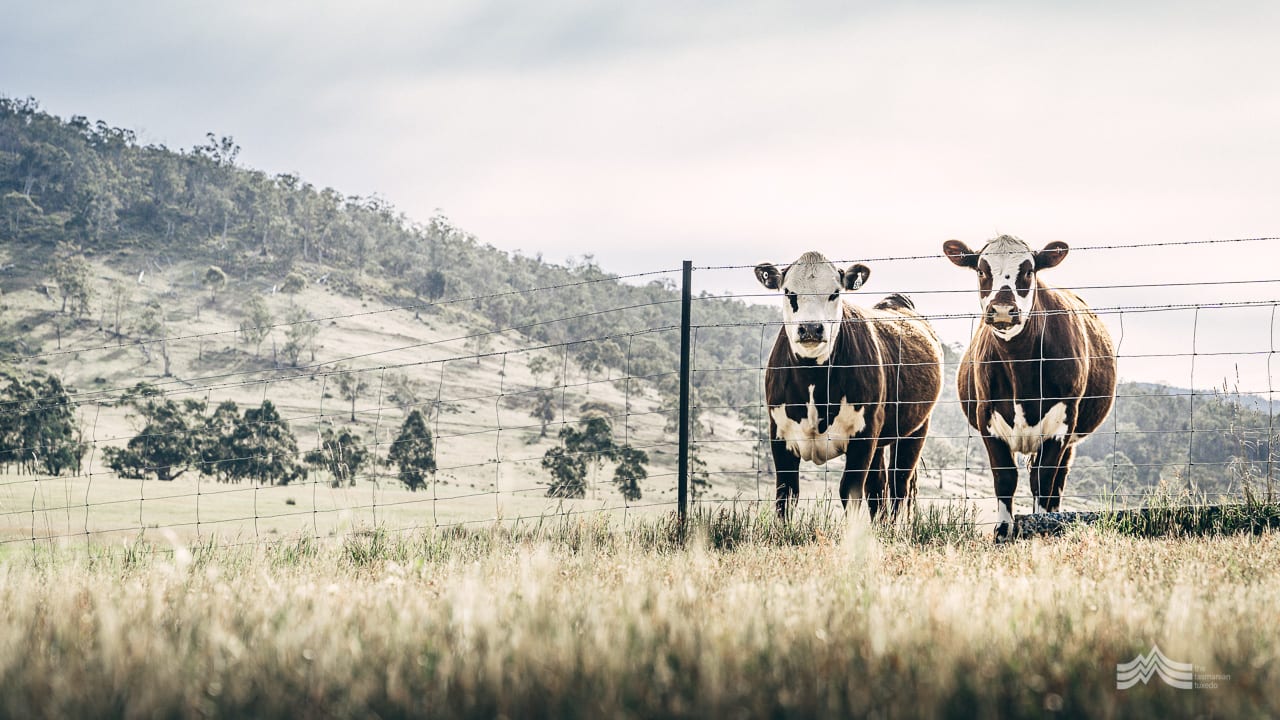
Out in the paddock, Anne pauses to reflect a moment on her husband’s work ethic. He’s the powerhouse that sees her dreams brought to life. “You’ll never find a man who works as hard as Robert,” she says definitively. “He’s simply amazing. He’s up at dawn every morning and can turn his hand to anything. He’s a master of improvisation, and what he can build never ceases to amaze me.”
The couple share boundless energy and countless ideas, together recalling how their fascination with elderflowers and elderberries all began. “When the kids were little I used to make everything from scratch,” explains Anne. “I was one of those neurotic mothers who ground flour by hand, baked my own bread…all of that. One of the things I used to make for their birthday parties was elderflower cordial.”
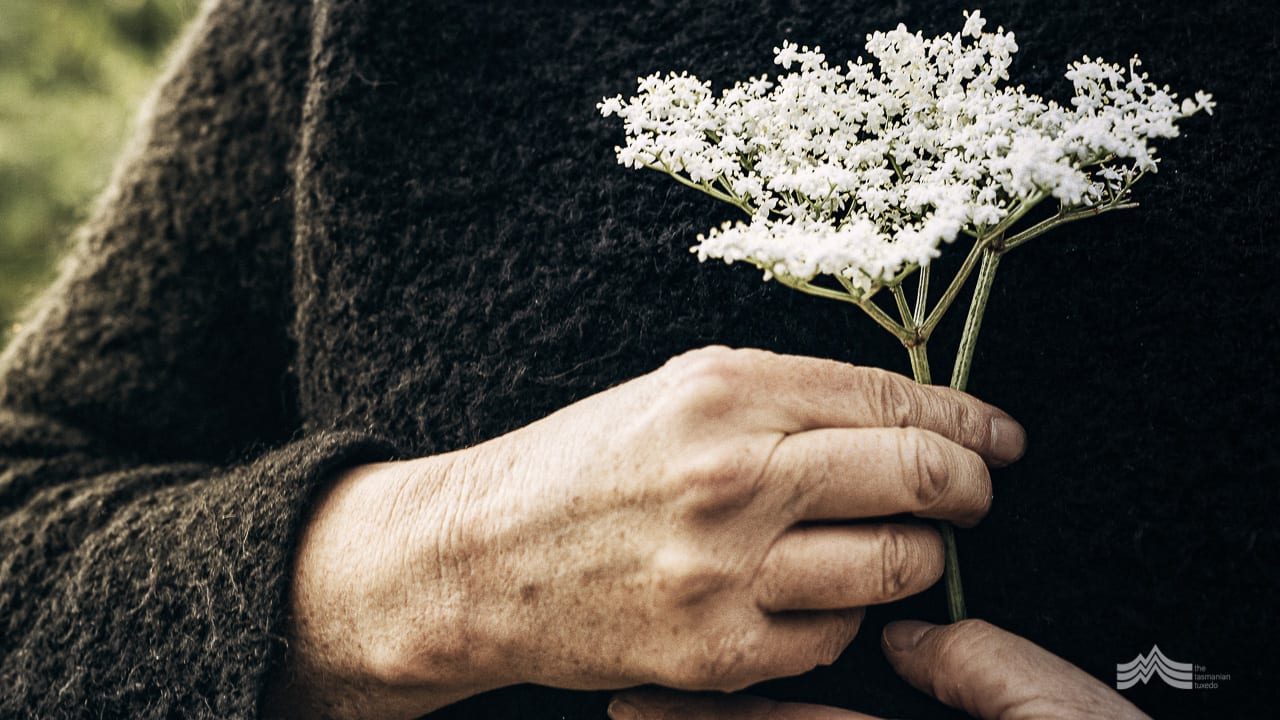
It wasn’t only the Ashbolt children who enjoyed Anne’s cordial. “Everyone who tried it loved it, so it wasn’t long before I identified business potential. No one else in the country was farming elders, so it was a first not just for Tasmania, but for Australia. We decided to give it a go.”
“The first ever market I attended cost me $30 to exhibit at and I sold $27 worth of products. Robert thought that was the end of it, but all I saw was the fact there were nine different people who loved what we produced.”
‘Elders’ as they are known, are deciduous shrubs native to Europe, Asia and north Africa. They are used both for their berries and flowers, and interestingly are surrounded by a swathe of ancient legends. “Folklore tells us that they used to be planted outside ones back door to ward off evil spirits,” describes Robert.
The health benefits of both elderflowers and elderberries have been well documented throughout the ages. They are both packed with antioxidants and vitamins famed for boosting the immune system and easing cold and flu symptoms. Other advantages include positive effects on inflammation, stress, and anti-viral properties that see viruses disabled before they take hold.
Anne’s renowned elderflower concentrate sits snugly brewing in a huge vat to one side of the Ashbolt’s production facility. The first taste of things to come is the heady lemony aroma that envelops one upon entering the room. “There’s a secret in knowing exactly when to pick the flowers,” she explains.
Traditionally made in Europe, the Ashbolts have developed their own preservative free method that produces stunning results. “We also grow our own lemons here, and they have become a key ingredient in many of our products,” says Anne. Peering into the vat to explore the bounty below, one is greeted with the delightful steeping mix of rich, juicy lemons floating atop the Ashbolt’s secret recipe. “We have a few secrets to this recipe,” she smiles. “It’s delicious.”

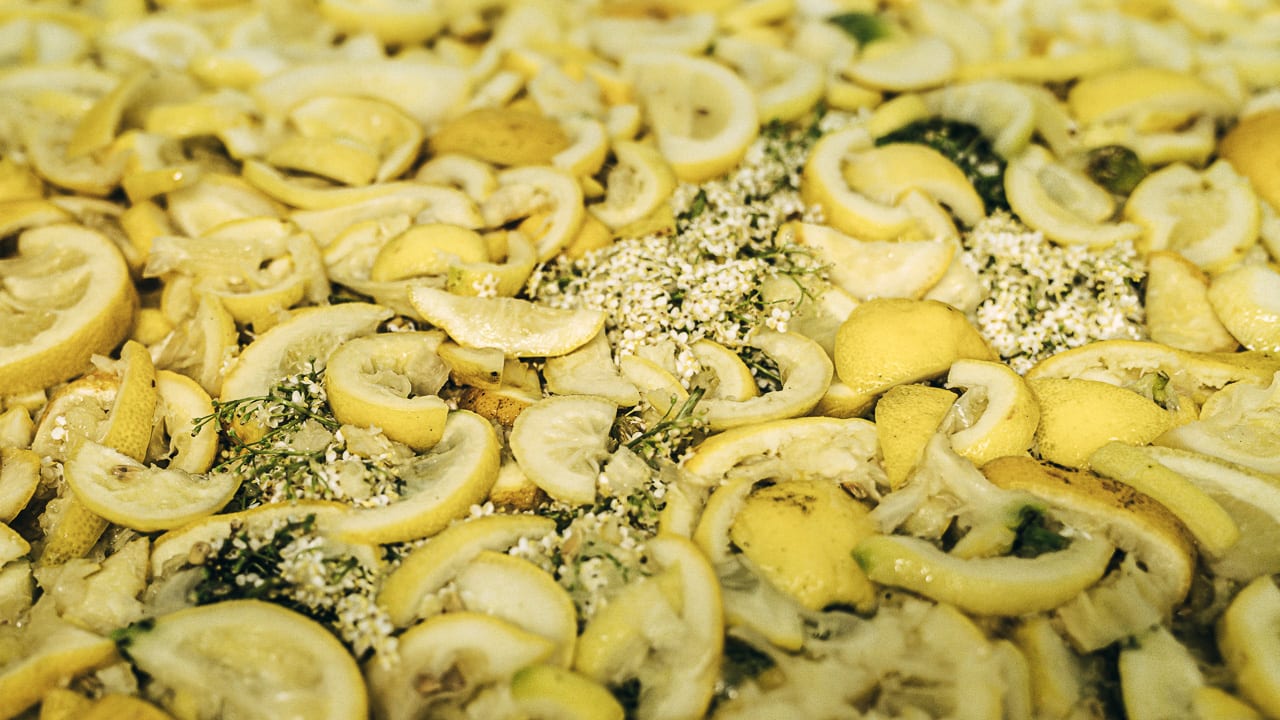
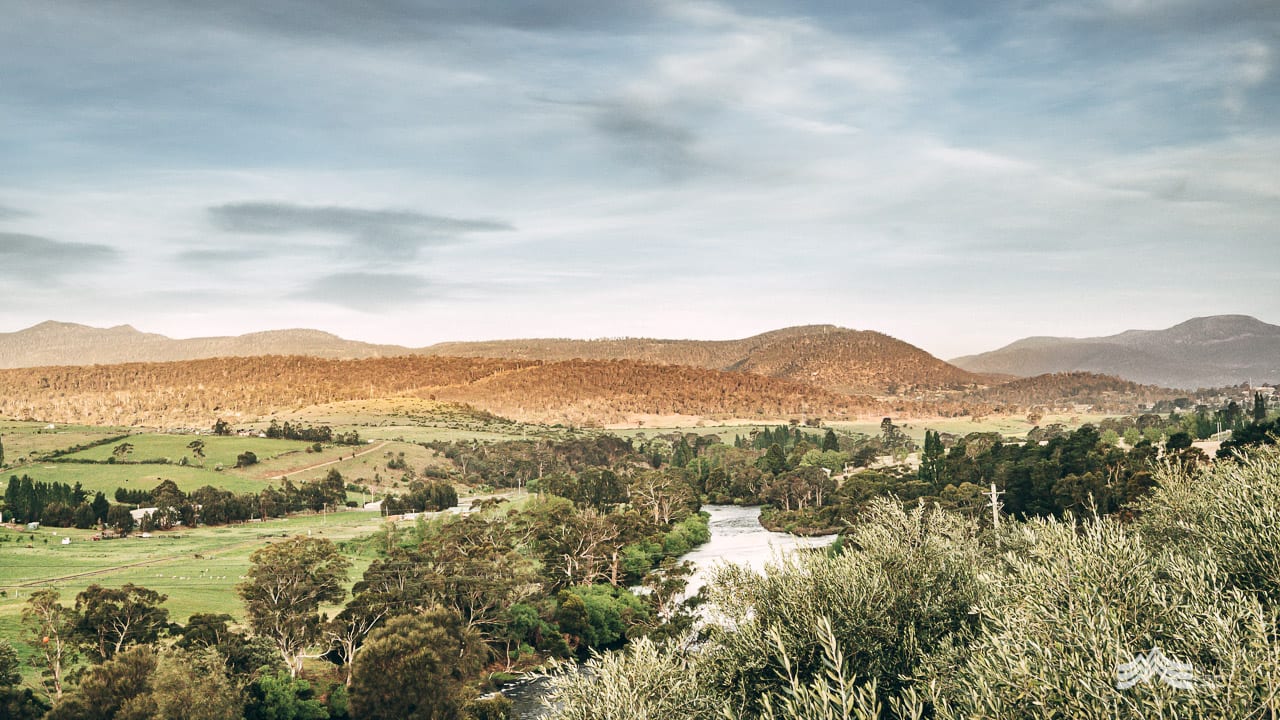
Visiting Ashbolt in spring, one lands in the middle of elderflower harvest season – one of Anne’s favourite times of the year. “Aren’t they just divine?” she sighs, gently rearranging stray flowers on the bench in her brewing room. “Elderflowers were once used for wedding flowers you know…they called them angels’ confetti.” Looking at the tiny clusters of cream flowers, it’s certainly hard to argue.
Together Robert and Anne have carved a niche market. They utilise both the elderflower and the elderberry to produce a range of sumptuous products that have a loyal following of ‘addicts’. In addition to premium elderberry and elderflower delights including concentrates, sparkling wines, vinegars and teas, there are sumptuous olive oils and salad dressings. “We often joke to customers that once they’ve sampled our products, they’ll be a customer for life and that holds pretty true. The hardest part is getting out there and enticing people to give it a go. We have a special product, and most of our business is from repeat customers who become lifelong fans. ‘Hooked for life’ is a phrase we often hear when they come back for more.”
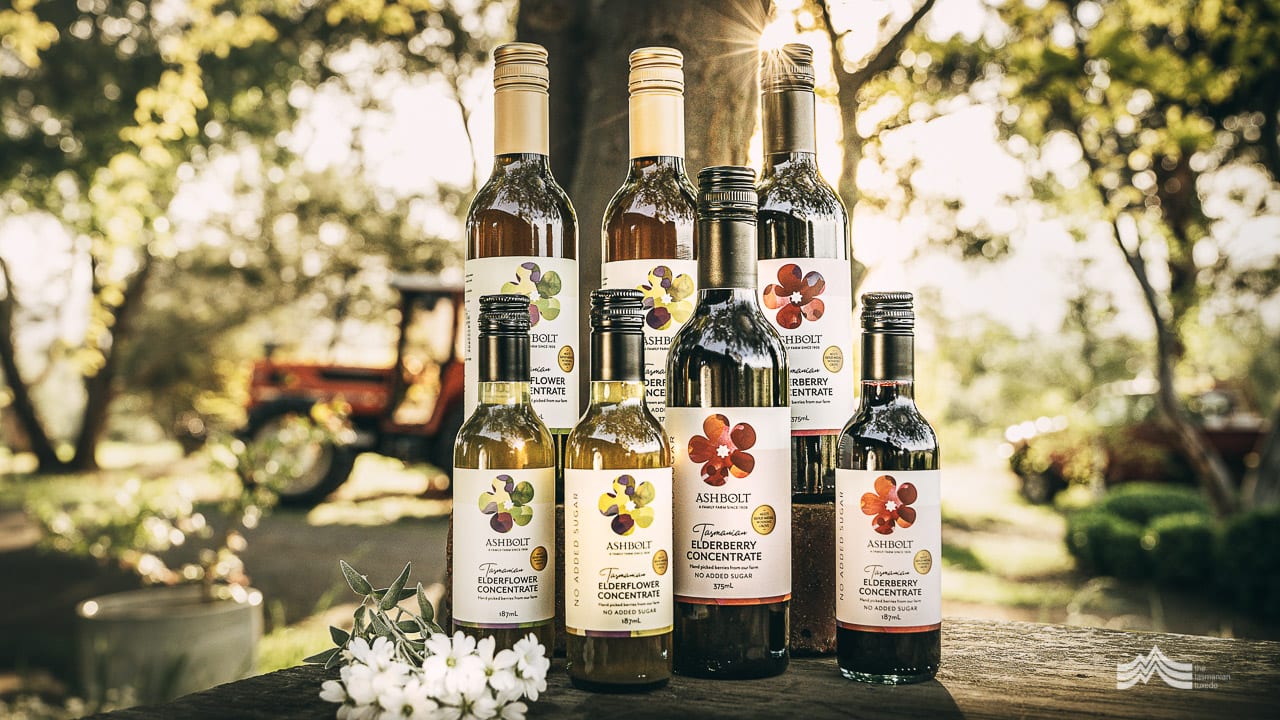
Olive groves have proved fruitful at Ashbolt Farm too, resulting in an array of award-winning, extra virgin olive oils becoming sought after by discerning chefs. The quality of Ashbolt’s cool climate olive oils has been recognised with national medals every year since its inception. “What we offer is sustainable, organic farming. Our olives are pressed within 3-4 hours of harvest to capture the freshest oil possible. It’s a perfectly balanced product…fruity, a touch of bitterness, and a mild, chilli-like pungency.” Anne remarks that she often tells people, “It leaves a tingle on the lips and a flavour that lingers for hours.”
Nearly 2000 olive trees are harvested throughout the cool winter months, 10 different varieties all requiring different harvest times and different pressing techniques. It is a complex business and this little farm has won awards every year since 2001, including an impressive number of national accolades.
Most ‘good weather days’ see the team beavering away during the two-month olive harvest, with Robert cold pressing these precious fruits within three hours of them being picked from the tree. Seven days a week, the hum of the olive press continues to whir well into the night. Sundown doesn’t mark the end of the day for these farmers. It is long and meticulous work adjusting, tinkering and gently encouraging the olives to release their wonderfully aromatic oils.
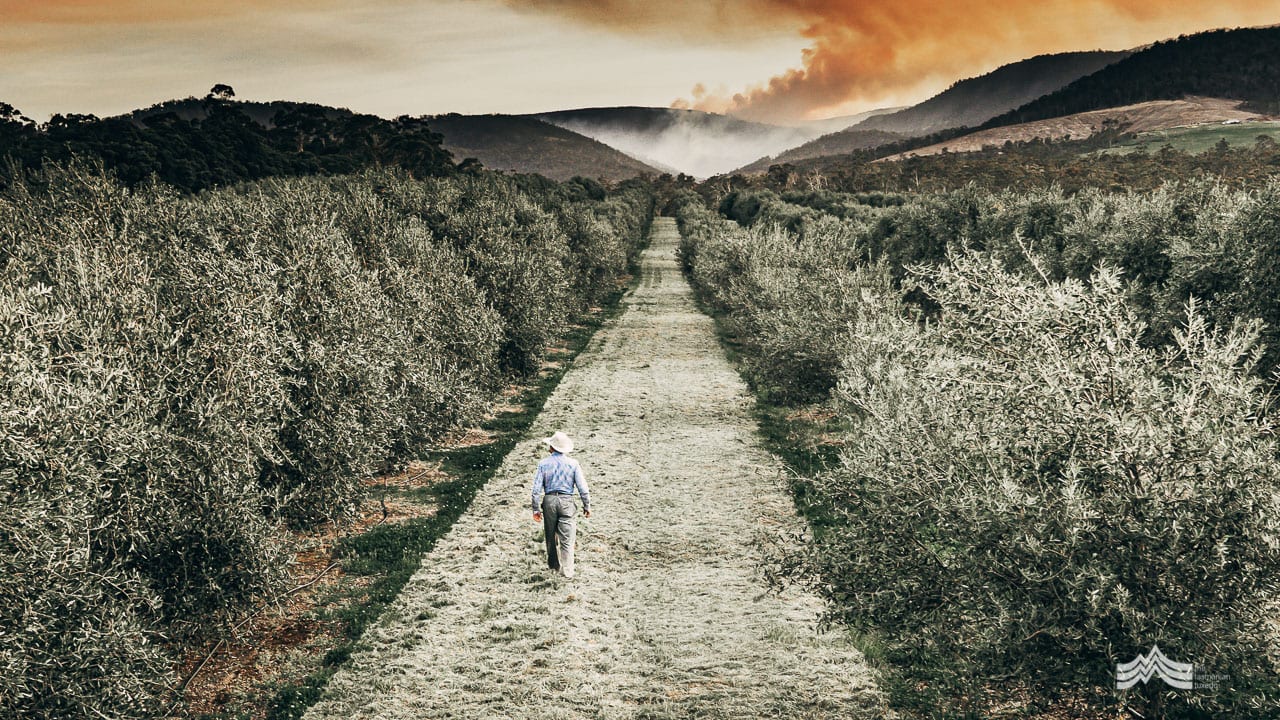
Product development takes all forms out here in the Derwent Valley. “Some things have been strategically planned, and others, like our salad dressing, have come about quite by chance,” recalls Anne. “One day I had a shot of elderflower and olive oil – I had mixed them by accident and the result was gobsmackingly beautiful. They seemed to marry so perfectly that I wondered why no one else had tried it before.” Anne adds proudly, “Ainsley Harriott is not the first celebrity chef to describe it as the world’s best salad dressing.”
Anne shares her ups and downs on the farm. “There’s no doubt farming is tough, and in hindsight I’d probably admit that what we took on was probably too much for just the two of us,” she sighs. “The amount of work that needs to be done never seems to diminish. There’s always drought proofing, fencing, irrigation and expanding shelter belts, and that’s just for starters. But at the end of the day, when I sneak into my office to catch up on things, I look out the window and am often distracted by this heavenly location. For me, this place is simply unbeatable.”
“I mean, just look at that view,” Anne gushes, as her eyes follow the evening light that plays on the ridgeline beyond. “To be here, perched above that beautiful river, in the shade of eucalypts that are over a century old…it’s divine really. It’s the perfect spot to rejuvenate and contemplate tomorrow.”
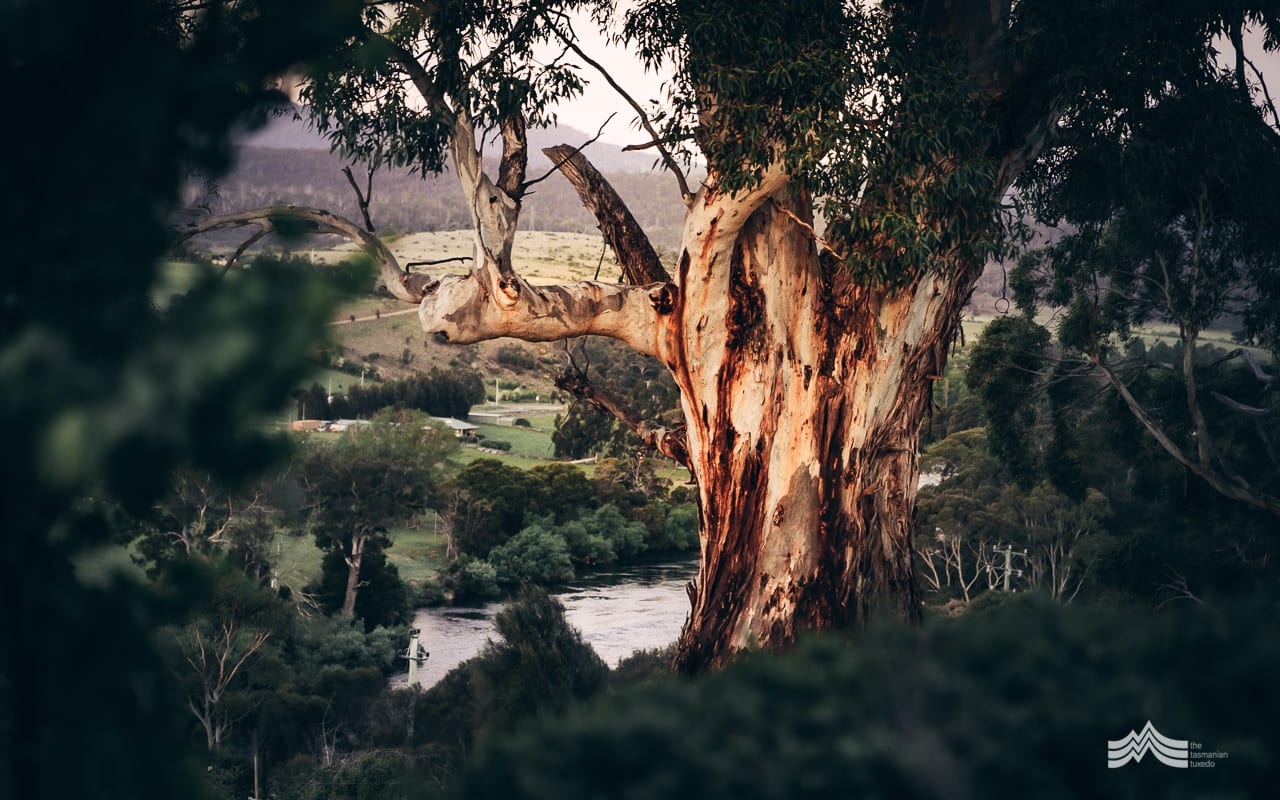
“And the river? It’s the jewel of this place. The only place I want to be on a hot summer’s day. Sinking in the water, kicking up the rapids, swimming with platypus. Watching eagles fly over overhead, as you kick against the current. It’s my very special place.”
Anne and Robert raised their now adult children on the farm, building a rambling homestead and developing a large vegetable garden from scratch. “There was nothing here when we arrived, just a bare paddock,” says Anne. ”I hate to think of the amount of manure we’ve dragged in and the number of hours we spent preparing and enriching the site. It’s been decades just to get it to this point. Their love for the land is palpable at every turn. Hand built stone walls painstakingly pieced together with sandstone collected on the property – the very same sandstone that built Hobart’s GPO over 100 years ago. Anne’s even named the towering gum trees that preside over entrance to their family home. “That’s Albert and Veronica,” she grins. “Aren’t they simply divine?”
The sense of a sustainable closed loop – of home-grown fruit creating wonderful products, and any waste providing seasonal nutrients for the stock – is strong comfort to these proud owners. “Each year, the cattle’s winter coats take on this incredible glossy sheen as they hoe into the olive waste. The leaves and oil slops provide valuable nutrients that help keep the winter cold at bay,” says Robert. “And then, a few months later it is the flowers, the following season sees the berry production and lastly, Anne’s home produce as it is processed for the house and winter stalls provides the last ‘dessert treat’ until the next seasons begins again.”
The future has been on Anne’s mind of late and in true Ashbolt style, there are always more plans in the wings. “We’ve just invested in a new olive pressing shed,” explains Anne. “But what I’d really love to see is a complete farm gate experience here so that we can welcome guests to the property for a true paddock-to-plate journey. Not many people are familiar with elders so there is real opportunity to offer something unique. It’s something in the planning stages.”
When asked what she is most proud of, Anne says, “I think we’ve made a powerful life of learning and creating with the sole purpose of adding to the future of this place. That, hopefully, it can be our last resting place, a final contribution to these soils in the valley.”
“When you have a farm, it really does steal your soul,” finishes Anne. “Every one of our products carries a piece of our heart, and I just hope that when people enjoy them, that they can appreciate everything that sits behind our brand. Unique products, with signature tastes, locally and sustainably grown by a real Tasmanian family business.”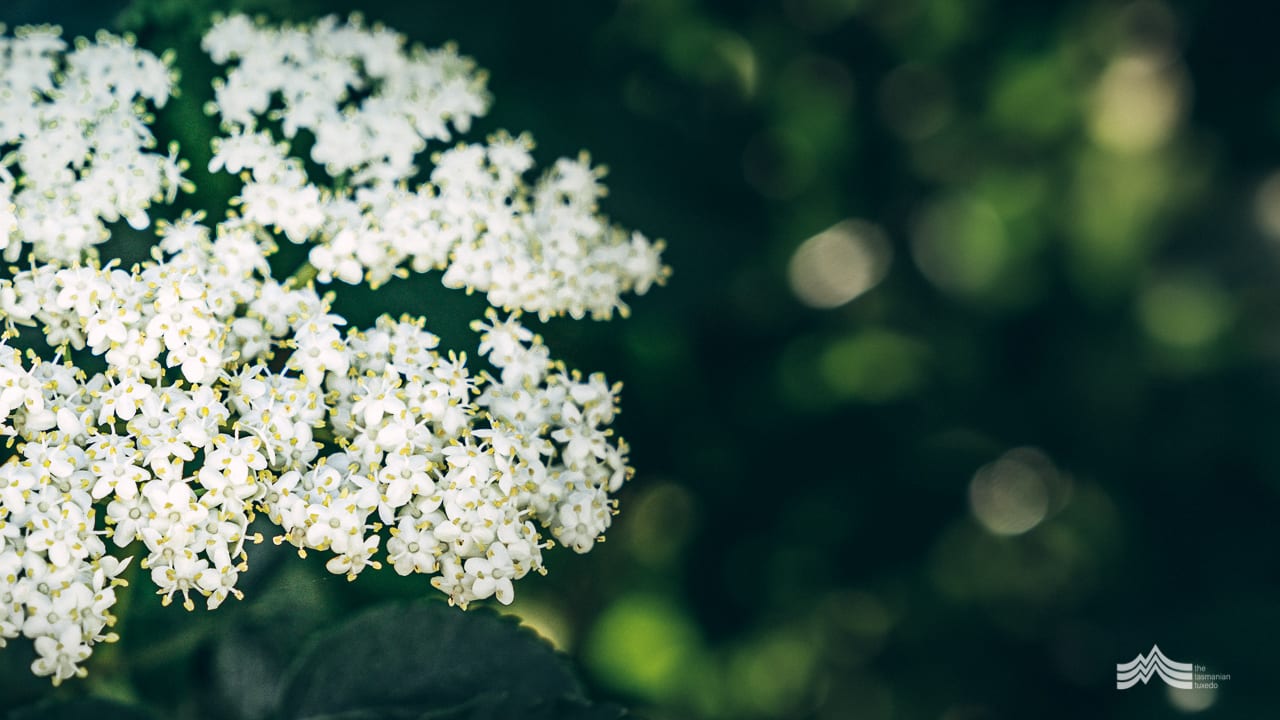
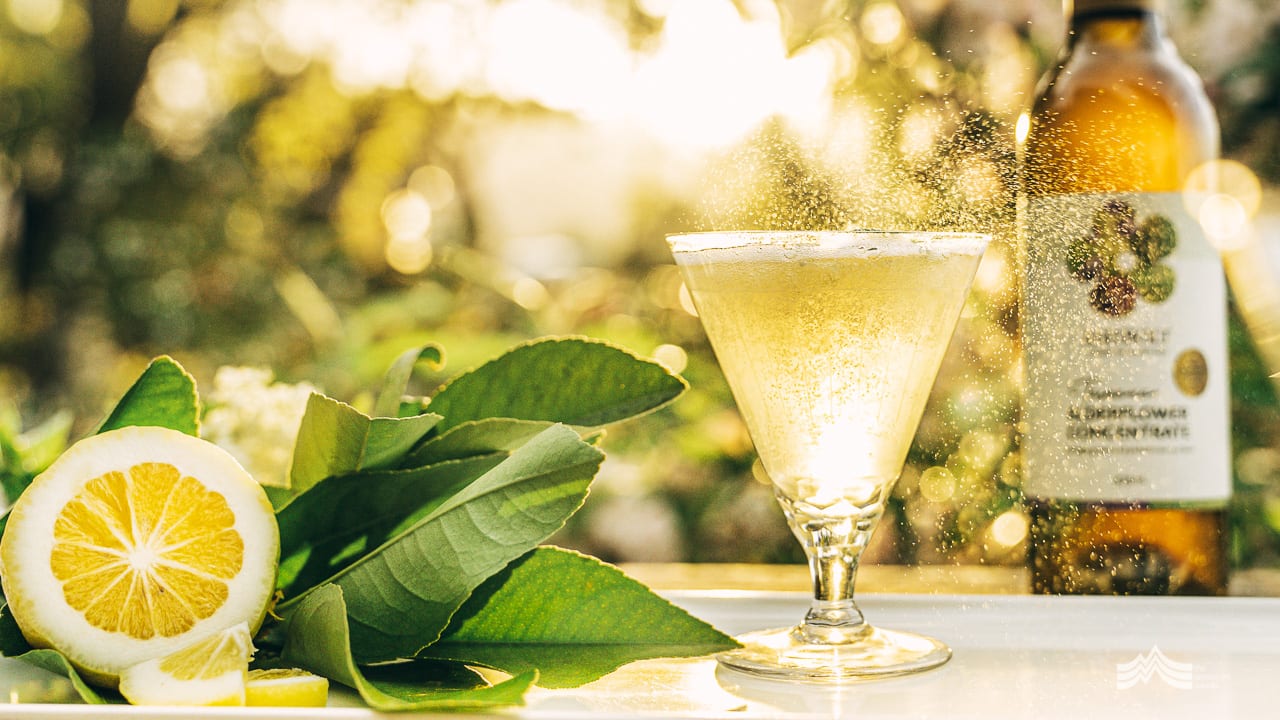
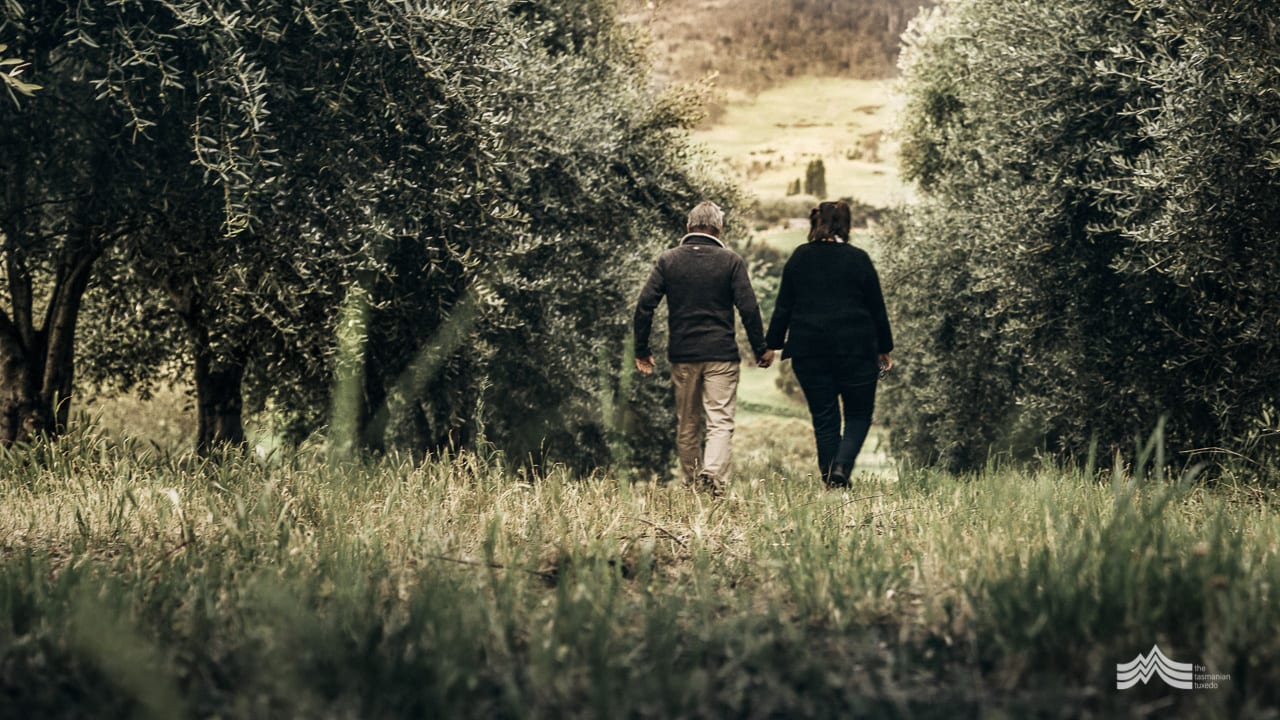
The Ashbolt Farm website showcases Robert and Anne’s full product range – order a taste for yourself today.
Keep up with life on the farm via Facebook and Instagram.
